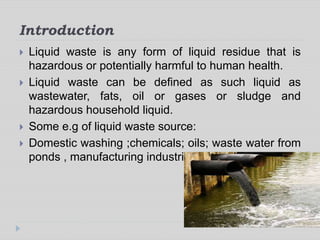The Best Strategy To Use For Reclaim Waste
The Best Strategy To Use For Reclaim Waste
Blog Article
The 3-Minute Rule for Reclaim Waste
Table of ContentsReclaim Waste Can Be Fun For EveryoneIndicators on Reclaim Waste You Need To KnowGetting My Reclaim Waste To WorkThe 2-Minute Rule for Reclaim WasteThe 5-Minute Rule for Reclaim Waste
Domestic sewer waste refers to the waste and items from a domestic septic container. The proper administration and disposal of residential sewage waste call for liquid waste to be transferred to a sewer therapy plant where the proper techniques and equipment are applied to cleanse and dispose of waste.
Business waste often includes prospective dangers, such as flammable products or a mix of liquid and strong waste items, and needs an extra advanced and in-depth disposal procedure. The disposal of business waste generally includes the purification of waste prior to transport to ensure risk-free and appropriate disposal. Hazardous waste is developed from results and drainage of commercial procedures and manufacturing.
This kind of waste can not use the exact same sewer monitoring transport or procedures as septic or business fluids. The commercial waste monitoring procedure calls for the examination and screening of fluid waste prior to it undertakes the disposal procedure (liquid waste removal melbourne). Overflow waste is the liquid waste that comes from runoff and excess stormwater in highly populated areas or cities
Runoff waste can cause contamination and flooding otherwise handled properly. Find out much more regarding sewer cleaning and waste management. Making sure appropriate waste administration can avoid disasters and reduce ecological damage. Both individuals in domestic settings and specialists in industrial or production sectors can take advantage of comprehending the processes and laws of fluid waste management.
All About Reclaim Waste
Get in touch with PROS Services today to discover concerning our waste administration and disposal solutions and the proper methods to care for the liquid waste you create.
(http://www.askmap.net/location/7161699/australia/reclaim-waste)This supposed 'wastewater' is not only an essential source yet, after treatment, will be launched to our land, waterways or the ocean. Made use of water from toilets, showers, bathrooms, kitchen sinks, washings and commercial processes is recognized as wastewater.

water used to cool equipment or tidy plant and equipment). Stormwater, a type of wastewater, is drainage that flows from agricultural and city locations such as roofing systems, parks, yards, roads, paths and gutters into stormwater drains pipes, after rainfall. Stormwater moves untreated directly to regional creeks or rivers, at some point reaching the ocean.
The Only Guide for Reclaim Waste
In Queensland, a lot of wastewater is dealt with at sewer therapy plants. Wastewater is moved from residential or commercial websites with a system of drains and pump stations, referred to as sewerage reticulation, to a sewage treatment plant. City governments develop, maintain and run most sewage treatment plants. Operators are accredited under the Environmental Defense Act 1994 to release cured wastewater at an acceptable environmental standard right into rivers.
The Division of Natural Resources suggests city governments about handling, operating and preserving sewerage systems and therapy plants. In unsewered locations, neighborhood federal governments may require owners to set up individual or household sewer treatment systems to deal with residential wastewater from toilets, cooking areas, washrooms and laundries. The Department of Natural Resources authorizes using household systems when they are confirmed to be efficient.
Most stormwater obtains no therapy. In some new communities, therapy of some stormwater to remove clutter, sand and gravel has actually begun making use of gross pollutant catches. Wastewater treatment takes place in four phases: Eliminates strong matter. Bigger solids, such as plastics and other things wrongly released to sewers, are gotten rid of when wastewater Learn More is gone through displays.
Wastewater then streams right into large storage tanks where solids resolve and are removed as sludge. Grease and residue are skimmed from the surface area. Uses small living microorganisms called micro-organisms to break down and eliminate remaining dissolved wastes and great fragments. Micro-organisms and wastes are included in the sludge. Gets rid of nitrogen and phosphorus nutrients that could trigger algal blossoms in our rivers and intimidate aquatic life.
The 7-Second Trick For Reclaim Waste
Nutrient elimination is not offered at all sewage therapy plants due to the fact that it needs costly specialised equipment. Clear fluid effluent created after treatment might still consist of disease-causing micro-organisms - industrial wastewater treatment.

This usually implies wastewater has to be treated or impurities eliminated before it can be released to waterways. Many wastewater flows right into the sewerage system. Under the Act, city governments provide approvals and permits for ecologically relevant tasks (Ages) involving wastewater launches that may have a regional effect. The division provides approvals and permits to Ages entailing wastewater releases that could have a regional or statewide influence.
An Unbiased View of Reclaim Waste
Tracking supplies valid details concerning water top quality and can validate that licence problems are being fulfilled. The info gotten via surveillance gives the basis for making water high quality decisions.
Report this page